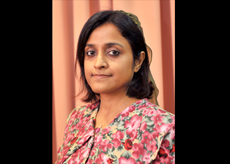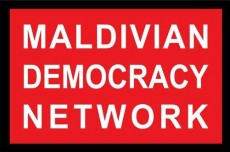Human rights group Maldivian Democracy Network (MDN) has requested the Police Integrity Commission (PIC) to probe police’s failure to investigate dangerous criminal activity outlined in a report into the disappearance of Minivan News journalist Ahmed Rilwan.
The report – which claimed Rilwan was likely to have been abducted by radicalised gangs – was sent to the police on September 22 along with a letter requesting the police investigate its findings, MDN said.
The police proceeded to dismiss the report, however, claiming it was released for “political gain,” and has not yet informed the NGO if it has looked into any of the allegations.
The investigation – conducted by Glasgow based Athena Intelligence and Security – identified possible suspects in Rilwan’s disappearance, and confirmed hostile surveillance of Rilwan on the night he went missing. It also linked his disappearance to an abduction at knifepoint outside Rilwan’s apartment on the same night.
“The Maldives Police Services failed to investigate the various criminal actions outlined in the report in the past 2 months and 26 days,” MDN’s letter to the PIC on Monday read.
“We request that your commission investigate and take action against those police officers who have been negligent in this case.” Criminal activity highlighted in the report include:
- Death threats issued against Rilwan by the administrators of Facebook Group Bilad Al-Sham and stalking by an individual called Ismail Abdul Raheem
- Abduction with a knife reported on August 8 in front of Rilwan’s apartment
- Hostile surveillance of Rilwan by at least two people belonging to Kuda Henveiru gang in Malé
Home Minister Umar Naseer has also acknowledged involvement of gangs in Rilwan’s disappearance. Meanwhile, Rilwan’s family has also lodged a complaint at the PIC accusing the Maldives Police Services of negligence.
The police had failed to treat the case seriously despite Rilwan’s high risk profile, the family said. Although an abduction reported outside Rilwan’s apartment at 2 am on August 8, the police only took statements from eyewitnesses on August 14, the family noted.
Further, the police officer in charge of the Hulhumalé police station prevented junior officers from apprehending and searching the car used in the abduction on the same night, the family said.
“If the abduction had been investigated immediately at the right time, the police would have been able to find the victim and clarify if it is our brother or not,” Rilwan’s sister Mariyam Fazna has said.
The police only searched Rilwan’s apartment 29 hours after the abduction was reported and searched his office 11 days afterwards. The police also failed to make a public announcement on Rilwan’s disappearance – despite a request by the family – and did not inform the public on how to act if they had any information related to the case, the family explained further.
In a statement to mark the 100 days of disappearance, Rilwan’s mother Aminath Easa said the state had failed to protect her son and bring perpetrators to justice.
Police Commissioner Hussain Waheed had previously denied negligence while the home minister told state television that some crimes could not be solved.
Related to this story
MDN investigation implicates radicalised gangs in Rilwan’s disappearance
Missing journalist’s family accuses police of negligence, files complaint
“The old posters fade, but we do not forget,” says Rilwan’s family
“Not all crimes in the world are solvable”: Home minister says on Rilwan’s disappearance

 Meanwhile, Minister of Foreign Affairs Dunya Maumoon stated that the Maldives has given “greater impetus and focus to strengthening our systems and institutions to better safeguard human rights and fundamental liberties” since former President Maumoon Abdul Gayoom began the introduction of democratic governance in the country in 2004.
Meanwhile, Minister of Foreign Affairs Dunya Maumoon stated that the Maldives has given “greater impetus and focus to strengthening our systems and institutions to better safeguard human rights and fundamental liberties” since former President Maumoon Abdul Gayoom began the introduction of democratic governance in the country in 2004. maintaining that it is the result of having an elected government in place after a politically turbulent period.
maintaining that it is the result of having an elected government in place after a politically turbulent period.